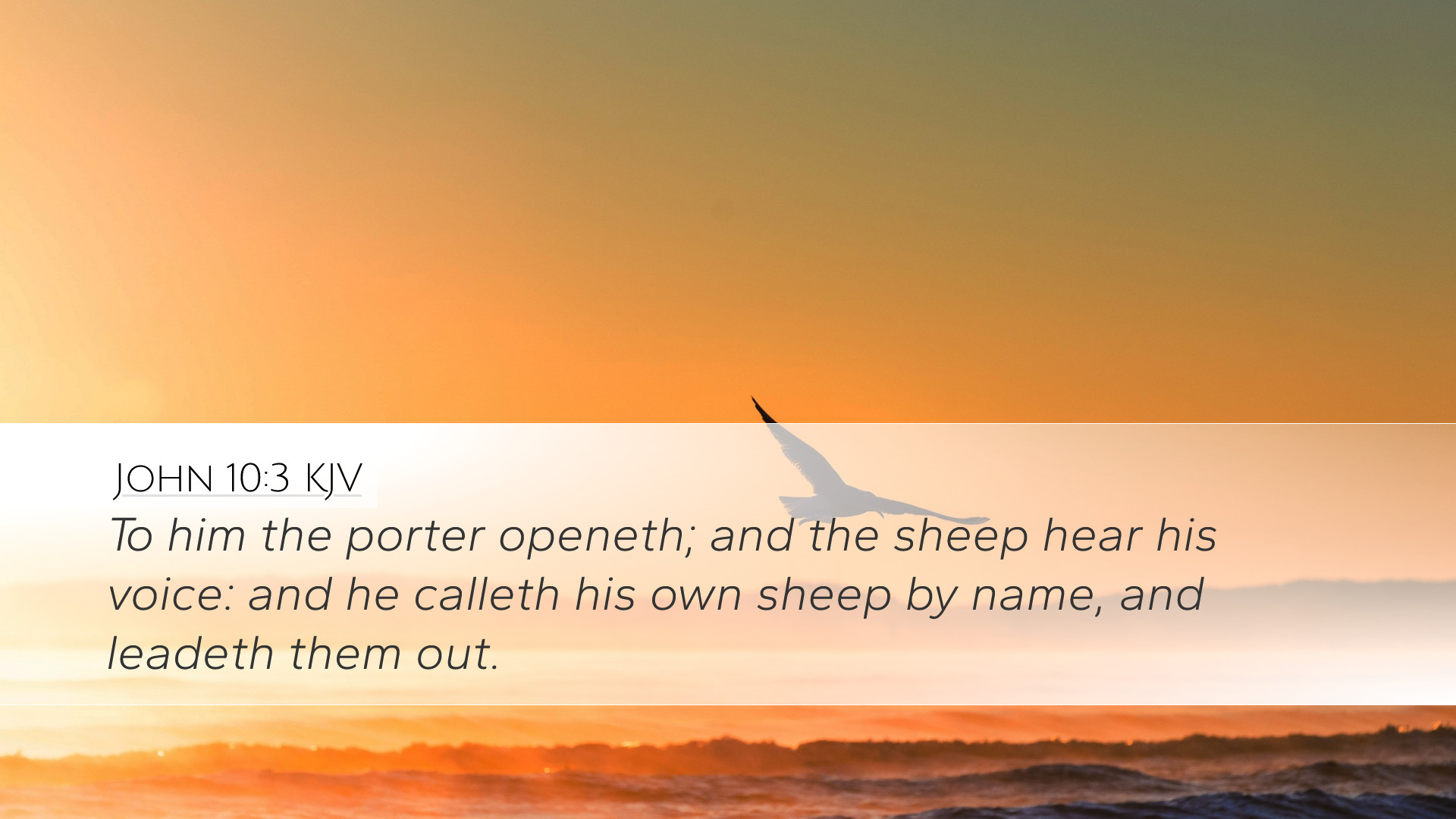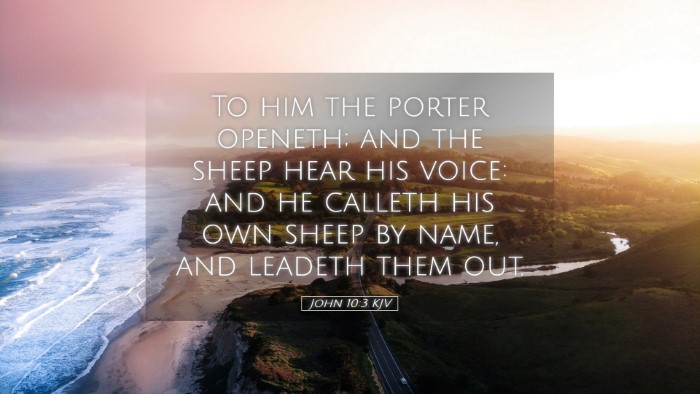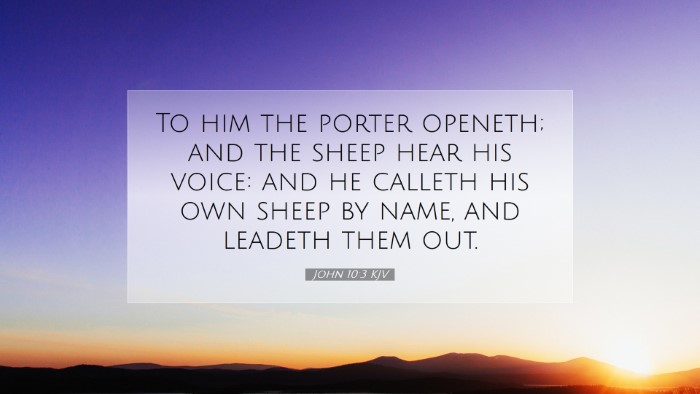Commentary on John 10:3
Verse: "To him the porter openeth; and the sheep hear his voice: and he calleth his own sheep by name, and leadeth them out." (John 10:3)
Introduction
John 10:3 is a pivotal verse within the greater context of Jesus' discourse on the Good Shepherd. This passage encapsulates the profound relationship between Christ and His followers, illustrating concepts of guidance, recognition, and intimacy in the believer's relationship with God.
Insights from Public Domain Commentaries
Matthew Henry's Commentary
Matthew Henry emphasizes the role of the shepherd and the sheep's ability to recognize his voice. He notes that the "porter," or gatekeeper, represents the law and the prophets who prepare the way for Christ. The phrase "the sheep hear his voice" highlights the inherent ability of God's people to discern His voice, coupled with a sense of belonging and direction. Henry describes this relationship as one marked by trust, where the sheep follow the shepherd not out of obligation, but out of love and recognition.
Albert Barnes' Notes on the Bible
Albert Barnes elaborates on the significance of "the porter" who opens the gate for the shepherd. He points out that this symbolizes divine provision and the authority of Christ over His flock. Barnes underscores that the voice of the shepherd is familiar to the sheep, reflecting a deeper spiritual truth: those who belong to Christ will respond to His call. He remarks that the calling "by name" underscores a personal relationship, suggesting that every believer has a unique identity in the sight of God, affirming individual care and attention from the shepherd.
Adam Clarke's Commentary
Adam Clarke provides a rich context to the cultural practices of shepherding in Biblical times. He notes that sheeps' ability to distinguish their shepherd's voice is rooted in the familiarity developed between them. Clarke reinforces the notion of God’s intimate knowledge of His people, asserting that each follower is known by name, which speaks to the depth of God's love and the personalized guidance He offers. Clarke stresses that this verse serves as a comfort, illustrating that God is not a distant figure but a Shepherd keenly aware of each individual’s circumstances.
Theological Implications
- The Nature of Divine Call: John 10:3 portrays the concept that God calls individuals personally and intimately, which can shape the understanding of vocation and calling within Christian ministry.
- Recognition of God's Voice: The ability of the sheep to hear and recognize the shepherd’s voice serves as a metaphor for the spiritual discernment needed in the life of a believer. It calls for constant engagement with the Word of God, so that discernment becomes instinctive.
- Shepherding Leadership: This verse also applies to pastoral leadership. Leaders are role models who represent Christ, guiding their congregations with care and clarity, reflecting the intimate manner in which Jesus Shepherds His flock.
Practical Application
For pastors and ministry leaders, John 10:3 signifies the importance of teaching the voice of the Good Shepherd, which includes biblical literacy and spiritual formation. Discipleship should be aimed at helping individuals recognize and respond to Christ’s voice in their otherwise noisy world. Believers are encouraged to cultivate their personal relationships with God, fostering an awareness of His guidance through prayer, scripture study, and communal worship.
Conclusion
John 10:3 not only affirms the relationship between Christ and His followers but also serves as a reassurance of His intimate care. Insights from Matthew Henry, Albert Barnes, and Adam Clarke articulate the depth and breadth of this relationship. Understanding and applying the truths found in this passage can serve both as a source of comfort and a motivational call to deeper discipleship and pastoral care.


